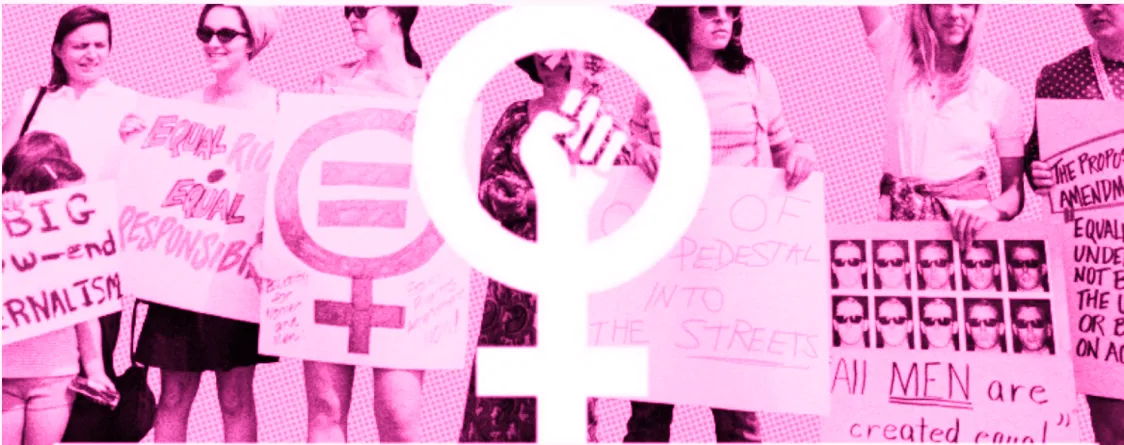Table of Contents
Angela Shanahan
mercatornet.com
Angela Shanahan is a Canberra-based freelance journalist and mother of nine children. She has written regularly for The Australian for over 20 years, The Spectator (British and Australian editions) for over 10 years, and formerly for the Sunday Telegraph, the Sydney Morning Herald and the Canberra Times.
There is a war going on in Australia, which has spread from other parts of the developed world, and it isn’t the fight against Covid-19. It is a war against men. It is happening on several fronts.
The reasons for the war are complex. It is mixture of a power grab by a new generation of feminists who have run out of things to be angry about, the sheer cowardice of politicians and policy makers in the face of new feminism, and misinterpretation of social problems.
Rape and domestic violence are real and pressing evils. They always have been, but the causes are too often quite deliberately misinterpreted as being about “gender”, particularly about male gender. But the causes of sexual violence are complex and often involve the pathologies that plague our whole society, both men and women.
Take for example one of the most widely accepted “facts” about domestic violence: that it is always men being violent towards women and children. Women are assumed to be passive victims. We have all read the ghastly horror stories about men killing women and children – and themselves. The public reaction is usually “these men are monsters”. However, the public reaction to violence by women is very different.
Recently a man in Melbourne came home to find his children and wife dead – and the police took him into custody. Why? The partner is usually the perpetrator. But in this case, it was his wife who had killed the children and herself. Was she a monster?
The media reaction to that case was very different. There was analysis of why a woman would do such a thing. The ABC had a piece saying she was not a victim of domestic violence therefore, she obviously had grave mental health issues, which was indeed true. There is usually mystified and sympathetic analysis of maternal filicide, but never if the perpetrator is the father. Why? Because the ideology is to have these crimes considered simply and only in terms of gender. In the feminist-influenced media, high-profile, horrific cases of fathers killing wives and children and usually themselves, are analysed through the simplistic trope of gender. The men become symbols of “gendered violence”: men as monsters.
We know that all men are not monsters, and figures from the Australian Institute of Criminology show that more mothers kill their children than do their fathers. This sounds so counterfactual in today’s fevered anti-man climate that I shall quote from the author of the 2019 study, “Filicide in Australia, 2000-2012: A National Study”, Thea Brown. She summarises her research as follows: “mothers killed more children than fathers; stepfathers killed the next largest group; and parents or step-parents acting jointly the smallest group.”
In short, I repeat, the most likely group to kill children is mothers. The explanations for this in psychological literature vary from the real such as post-partum psychosis, to the outrageous gendered notion of “altruistic killing”.
But no killing is altruistic. After mothers the next biggest group of child killers are in police-talk the “unrelated resident male”, who unfortunately in recent Australian statistics is lumped in as “partner”. The least likely is the child’s father. What is more, unmarried women suffer violence more than married women. Marriage is enormously important as a protective factor for children.
However, serial non-marriage, familial separation, mental illness, drugs, alcohol – none of these come out in the left/feminist influenced analysis or in much of the media which blames gender as the sole cause of violence, rather than violence often caused as the result of complex pathologies that can affect both men and women.
In fact, extreme domestic violence that kills women and children is actually quite rare in middle Australia. It is not rare in Aboriginal communities. But violence in Aboriginal communities doesn’t fit the gender trope, and talking about that goes against the race trope. So, it is only brave Aboriginal women who can talk about it.
Anti-domestic violence campaigners like Rosie Batty are not generally anti-male. Most are trying to start a necessary conversation. However feminist extremists have latched on to this, pushing gender policies into all areas of public life, and public policy to access more funding. These are not the people on the front line working at refuges, which is where money should be going. These are people working in government policy, including education curriculums, where the “toxic masculinity” line has become so acceptable that adolescent schoolboys, rather than taught clear consistent gentlemanly behaviour, are paraded in front of their peers and forced to make public apologies All this will do is cause resentment and confusion in the young.
In the world of new feminism nothing is complex; we are even told we must see all allegations of domestic violence, no matter if they are frivolous and eventually dropped, as equally serious. Now extremist campaigners want the law changed to include domestic control, even though it is almost impossible to prove. But who needs proof? Unfortunately, because the gender trope is the only way we are allowed to see these issues, a foundation principle of the law is threatened.
There is no better example than the recent moves to change the rules of evidence in rape. Consent is all in rape, but the law cannot make distinctions about evidence based on arbitrary notions of what can and should be said during sexual congress when heightened emotion and instinct is all any man or woman can rely upon. By trying to simplify consent to positive affirmation two things will happen. It will exacerbate, not lessen the he-said, she-said problem. But worse it might make it very difficult for a man accused of rape to adequately defend himself. But that is the point. Isn’t it?
Please share this article so that others can discover The BFD.









